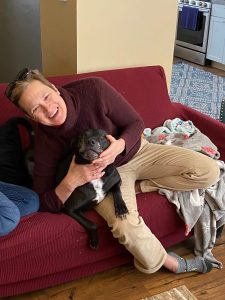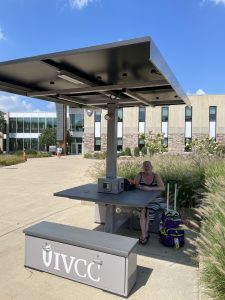Getting ready to talk about Psilocybin?
March 5, 2020
Psychedelic use has an ancient history. For example, tribes in Africa were using psilocybin for religious ceremonies as early as 9000 BC.
Psilocybin, also known as mushrooms, were also used by the Mayans and the Aztecs for interaction with healing spiritual deities over 2000 years ago.
Ayahuasca, a substance said to heal through spiritual journey through memories, is made from a vine and leaf. Inside this plant is DMT, a chemical that is produced in our bodies naturally. This was taken as a drink in the Amazonian tribes for over 5000 years.
Another is Peyote, which is sacred and worshiped by the Huichol people and Yaqui people in Mexico and groups of Native Americans. Peyote has been
taken since the beginnings of their culture for healing undiagnosed illness in a group ceremony.
The purpose for ingestion for all these examples is spiritual, religious, and or healing.
Flash forward to 2020, we are taking healing tips from the ancients and altering the stereotypical idea of medicine.
Most of us would commonly associate the word “psychedelic” with melting
colors featuring scenes like Woodstock. However, psychedelics are being resurrected with a new variety of uses, not
just for getting high and listening to live music.
Now people are getting high off psychedelics in a careful environment and listening to music while holding their therapists hand. Imagine an emotional therapist and patient session where the two are discussing the patient’s issues, while the patient has consumed mushrooms.
Johns Hopkins has recently opened a Center for Psychedelic and Consciousness Research where psilocybin was
administered in that exact way.
Alan Davis, one of the two founding members, explained why he believes psilocybin is successfully aiding depression
“First is the experience itself,” Davis said. “People who take psilocybin report having a deeply positive, mystical experience that seems to help them alter their perspective on their situation.
“More specifically, people with depression tend to feel isolated and disconnected from their daily lives. The experience of taking psilocybin makes them feel an intense interconnection that stays with them after the experience is over.
“People also report gaining insight on their depression, like they suddenly have an awareness of what they want to change in their life to help them move forward. That awareness, coupled with this mystical-like experience, serves as the catalyst for change.”
An important note is that the results provide lasting effects of feeling. It is also intriguing to a person interested in mental illness, cures, and overall health to see natural substances being administered in the ways the substances have seemingly been designed for all along.
The ancient civilizations recognized the powerful ability of the plants, and they placed them rightfully and carefully on a pedestal for religious and spiritual purpose.
Drugs that are supposed to heal are not designed for abuse. Whether it is psilocybin or Prozac, drugs have to be carefully taken, and with a purpose. Medicine is not something you should constantly be consuming.
As of today, the research regarding the psychedelic field is expanding greatly due to positive results.
Denver, Colo. has decriminalized mushrooms.
“We’re sending a clear signal to the rest of the country that America is ready to talk about psilocybin,” said Kevin Matthews, leader of the “Decriminalize Denver’’ movement. “We have work to do, we’re ready for it and we couldn’t be happier.”
At this rate, in years to come, we could predict a big change in what we view mental illness medication.



